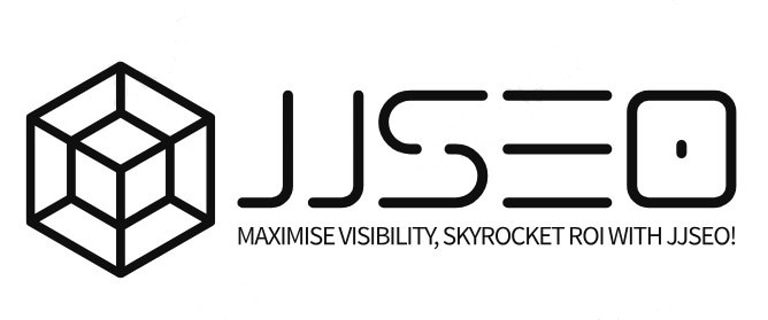The Critical Role of In-Depth Research in SEO Content Writing for Technical Niches: Navigating the AI-Driven Future
Discover why in-depth research trumps keywords in technical SEO content for science, finance, and insurance niches. Learn how expert content writers navigate AI overviews, ChatGPT competition, and agentic browsers to deliver authoritative content that ranks and converts. Essential reading for digital marketing agencies seeking specialised technical content expertise.
SEO CONTENT
Jorge Jaroslavsky
8/26/20257 min read


Technical SEO Content: Why Research Beats Keywords in the AI Era
In the evolving world of digital marketing, SEO content writing remains a cornerstone for businesses seeking online visibility. However, when it comes to technical niches such as science, finance, and insurance, the approach to SEO content must be far more nuanced. With the emergence of AI overviews, ChatGPT integrations, and agentic browsers reshaping how users discover and consume information, the stakes have never been higher for technical accuracy and expertise. This article explores why in-depth research is paramount in SEO content writing for technical niches and why it far outweighs mere keyword usage in driving relevance, authority, and audience trust in an AI-dominated search landscape.
Understanding the Unique Challenges of Technical SEO Content
Technical niches come with complex terminologies, strict regulatory requirements, and a discerning audience that demands precision. Unlike generic content, where keywords might suffice to rank, technical content necessitates an expert understanding of the subject matter to communicate effectively with both search engines and readers. Content must not only answer queries but also educate, inform, and demonstrate expertise whilst competing with AI-generated responses that users encounter daily.
For example, a scientific audience expects peer-reviewed sources, data accuracy, and thorough explanations of concepts. Similarly, readers in the finance sector require compliance with current regulations and transparent risk disclosures. The margin for error has become even smaller as AI systems increasingly curate and present information, making authenticity and accuracy paramount.
The AI Revolution: How Search Behaviour Is Changing
The digital landscape has fundamentally shifted with the integration of AI overviews in search results, conversational AI tools like ChatGPT, and the emergence of agentic browsers that proactively gather information on behalf of users. These developments present both challenges and opportunities for technical content creators:
AI Overviews and Featured Snippets: Google's AI-generated overviews now appear at the top of many search results, synthesising information from multiple sources. For technical content to be selected for these overviews, it must demonstrate exceptional accuracy, clarity, and authoritative sourcing.
Conversational AI Competition: Users increasingly turn to ChatGPT and similar tools for quick answers to technical questions. This means traditional SEO content must offer deeper insights, more current information, and unique perspectives that AI models cannot easily replicate.
Agentic Browsers: These sophisticated systems research topics autonomously, gathering information from multiple sources to provide comprehensive answers. Content that survives this scrutiny must be exceptionally well-researched and cited.
Why Research Trumps Keywords in Technical Niches
While keywords remain an essential SEO tool, focusing solely on keywords can lead to superficial content that undermines credibility—a fatal flaw in an era where AI can instantly fact-check and cross-reference information. In technical fields, searchers are often looking for detailed, accurate, and up-to-date information that surpasses what generic AI responses can provide. Here, research plays several critical roles:
Accurate Information: In scientific or financial content, inaccuracies can damage reputation and trust instantly, particularly when AI systems can quickly identify and highlight inconsistencies. Comprehensive research, including source verification and data analysis, ensures factual correctness that withstands AI scrutiny.
Meeting User Intent: Research helps uncover the precise questions and concerns of the target audience, enabling content that truly satisfies their search intent. It also identifies long-tail and niche keywords embedded naturally within the content—keywords that AI systems recognise as authentic rather than artificially inserted.
Building Authority: Detailed, well-referenced content signals expertise to both Google's algorithms and AI systems, which reward high-quality content with better ranking and improved visibility. AI overviews favour content from recognised authorities.
Addressing Complexity: Research allows writers to break down complex topics into digestible, user-friendly content without sacrificing depth—a crucial skill as users expect human-written content to offer what AI cannot: nuanced understanding and contextual expertise.
Superficial content stuffed with generic keywords may rank temporarily but fails to engage or convert the discerning readers typical in niche technical industries, and increasingly fails to compete with AI-generated alternatives.
The Role of Expertise and E-E-A-T Principles in an AI World
Google's E-E-A-T framework (Experience, Expertise, Authoritativeness, and Trustworthiness) is especially critical in YMYL (Your Money or Your Life) fields such as finance and insurance. With AI-generated content flooding the internet, demonstrating genuine expertise through thorough research and authoritative sources becomes the primary differentiator. Users and search engines alike prioritise content written or reviewed by subject matter experts—particularly content that AI systems cannot easily replicate.
The addition of "Experience" to Google's original E-A-T framework reflects the growing importance of first-hand knowledge and practical insights. In technical niches, this means content creators must demonstrate not just theoretical knowledge but practical application and real-world experience that AI models lack.
For businesses in technical fields, employing or collaborating with writers who have relevant domain expertise is invaluable. Authentic expertise not only enhances content credibility but also builds a loyal audience and potential client base whilst ensuring content remains competitive against AI alternatives.
The Crucial Role of the SEO Consultant in Technical Niche Content
Many digital marketing agencies assume that an SEO consultant's role is limited to keyword research and on-page optimisation, but in niche technical content—particularly in the AI era—the consultant's involvement in content creation and research is crucial. This active participation ensures that:
Technical nuances and industry-specific terminology are correctly understood and utilised in ways that AI systems recognise as authoritative
SEO keywords are integrated organically into expertly written content without diluting meaning or readability
Content adheres to legal and regulatory standards, especially in finance and insurance sectors
The company's brand identity and values are reflected authentically in the content
The risk of publishing outdated or incorrect information is minimised by an expert overseeing the research
Content is structured to compete effectively with AI-generated responses and overviews
An SEO consultant with technical knowledge or experience can bridge the gap between marketing goals and specialist content requirements. This synergy ensures that the blog acts not only as an SEO tool but also as an authoritative resource trusted by both Google's AI systems and industry professionals alike.
Adapting Content Strategy for AI-Driven Search
The emergence of AI in search requires a fundamental shift in content strategy. Technical content must now be optimised not just for traditional search engines but for AI systems that evaluate and synthesise information:
Structured Data and Schema Markup: AI systems rely heavily on structured data to understand and categorise content. Technical content must implement comprehensive schema markup to ensure AI systems can accurately interpret and reference the information.
Question-Answer Formatting: With conversational AI becoming prevalent, content should anticipate and directly answer specific questions that users might pose to AI assistants.
Citation and Source Quality: AI systems evaluate the credibility of sources when determining which content to feature in overviews. High-quality citations from peer-reviewed sources, government databases, and recognised industry authorities become even more critical.
Content Freshness: AI systems favour recent, up-to-date information. Technical content requires regular updates to maintain relevance and authority in AI-driven search results.
Best Practices for SEO Consultants Writing Technical Content in the AI Era
To maximise the impact of technical SEO writing in today's landscape, consultants should adopt enhanced best practices:
AI-Aware Research: Understand how AI systems evaluate and synthesise information, ensuring content meets these standards whilst providing unique value that AI cannot replicate.
Collaborative Expertise: Work closely with subject matter experts within the company or external specialists to verify facts, provide unique insights, and stay current on industry trends that AI models might miss.
Comprehensive Keyword Analysis: Go beyond basic keywords; identify niche-specific long-tail keywords, jargon, and related concepts through detailed user intent analysis that considers both traditional and conversational search patterns.
Content Depth and Uniqueness: Create content that offers insights, analysis, and perspectives that generic AI responses cannot provide, focusing on original research, case studies, and expert commentary.
Multi-Format Content: Develop content in various formats (articles, infographics, videos, podcasts) to appeal to different AI systems and user preferences.
Compliance and Accuracy Checking: Stay informed about legal and regulatory requirements that impact content, with particular attention to accuracy standards that AI systems will verify.
Integrating Research with Modern SEO Best Practices
Balancing depth, SEO, and AI optimisation requires strategic thinking:
Comprehensive Research First: Use keywords to guide research themes but prioritise comprehensive coverage that satisfies both human readers and AI evaluation criteria.
Structured Content Architecture: Use clear headings, bullet points, and summaries to make complex information accessible to both users and AI systems parsing content.
Original Insights and Analysis: Incorporate unique analysis, case studies, or expert commentary that AI cannot easily replicate or synthesise.
Authoritative Citations: Reference credible journals, reports, and industry standards extensively to boost trust and signal authority to AI systems.
Content Format Diversity: Include infographics, videos, or whitepapers where appropriate to enhance user engagement and provide multiple touchpoints for AI systems.
Continuous Updates: Regularly update content with the latest research and developments to maintain relevance in an rapidly evolving information landscape.
Case Studies: Technical Content in Practice
Finance Sector Evolution: Consider how financial content must now compete with AI-generated market analyses and regulatory summaries. A finance blog post covering new tax legislation must not only reference government documentation but provide unique analysis, practical implications, and expert insights that AI responses lack. This depth reduces bounce rates, encourages longer engagement, and positions the firm as a trusted authority that complements rather than competes with AI tools.
Scientific Content Authority: In scientific niches, content must reference peer-reviewed research whilst providing accessible explanations and practical applications. Research-intensive content that demonstrates genuine expertise becomes invaluable when AI systems evaluate credibility and users seek authoritative sources to verify AI-generated information.
The Future of Technical SEO Content
As AI continues to evolve, technical content creators must anticipate further changes:
Voice Search Optimisation: As voice assistants become more sophisticated, technical content must be optimised for natural language queries
Visual Search Integration: Technical content should incorporate relevant images, diagrams, and infographics that AI systems can interpret and reference
Real-Time Updates: The expectation for current information will intensify, requiring more dynamic content management approaches
Conclusion: Embracing the AI-Enhanced Future
For digital marketing agencies seeking specialised technical content writers, the landscape has fundamentally changed. The integration of AI into search and content discovery makes in-depth research not just valuable but essential for survival in technical niches. Mere keyword optimisation is insufficient when audiences expect accuracy, expertise, and trustworthiness that surpasses AI-generated alternatives.
The most successful technical content strategies will combine rigorous research methodologies with AI-aware optimisation techniques. SEO consultants who understand both the technical demands of niche industries and the evolving AI landscape become invaluable partners for agencies serving clients in science, finance, insurance, and other specialist sectors.
This evolution presents an opportunity for agencies to differentiate themselves by partnering with content specialists who can navigate both traditional SEO requirements and the new AI-driven search environment. The result is content that not only ranks well but establishes genuine authority in an increasingly competitive digital landscape.
Expertise
Driving organic traffic with tailored SEO solutions.
Growth
Results
Mail to: jj@jjseo.co.uk
© 2025 JJSEO. All rights reserved. | Expert SEO Consultant in Leeds
